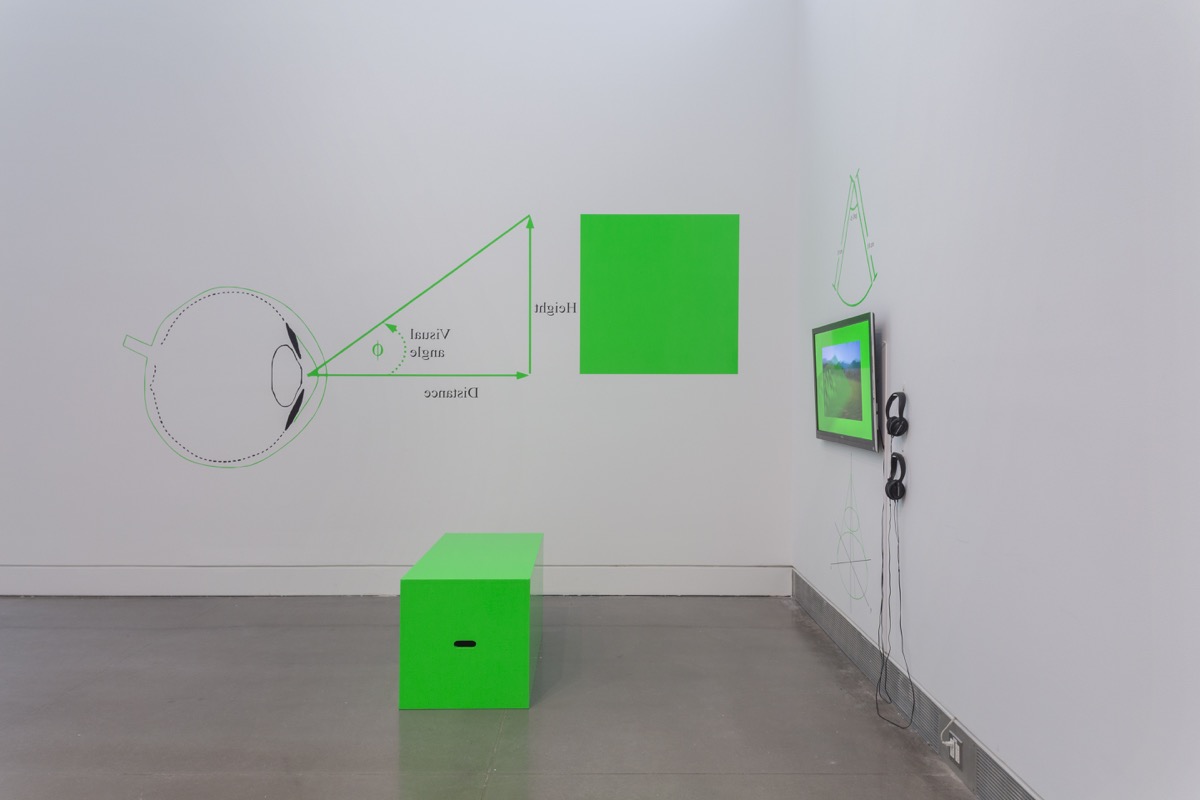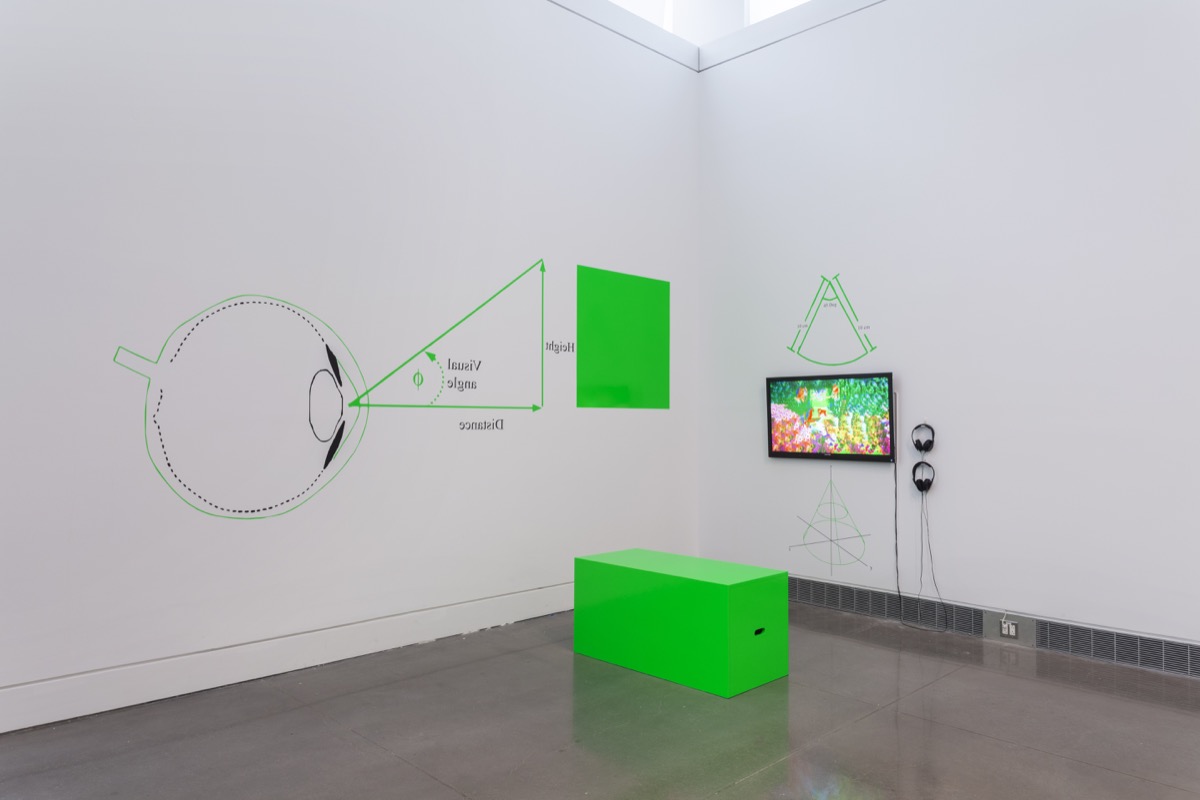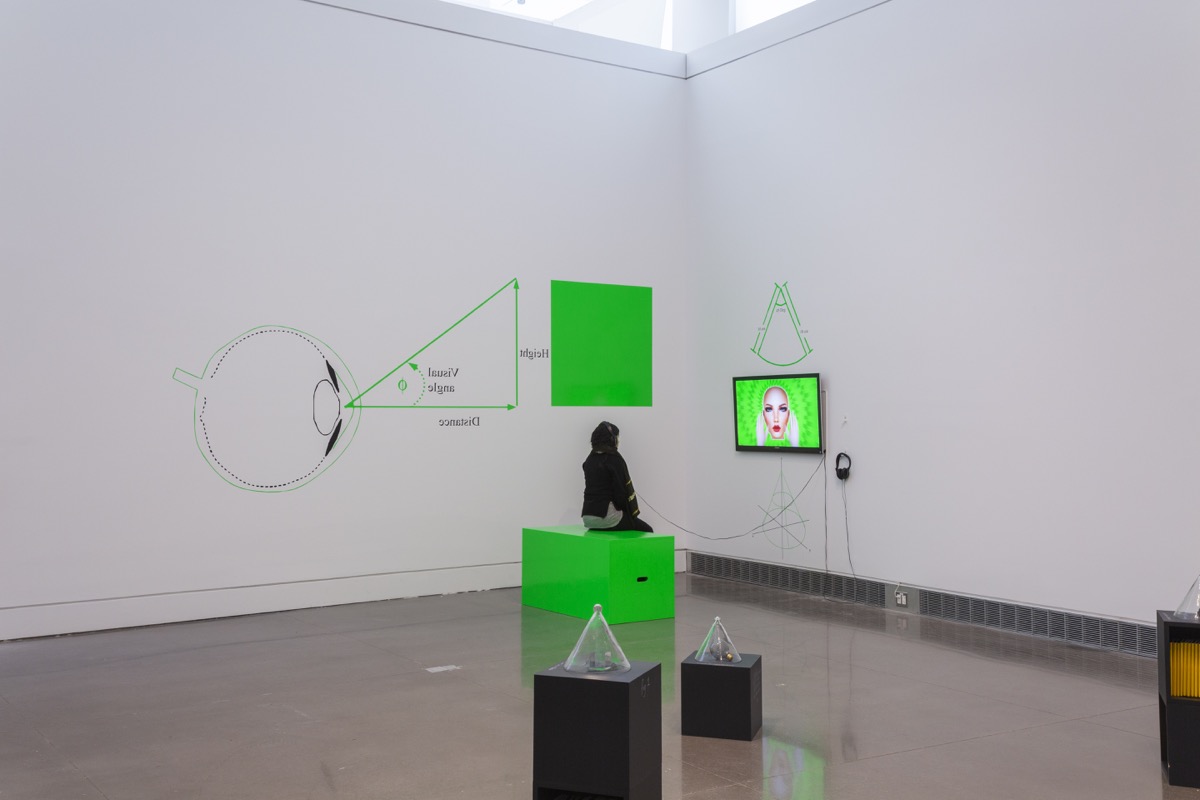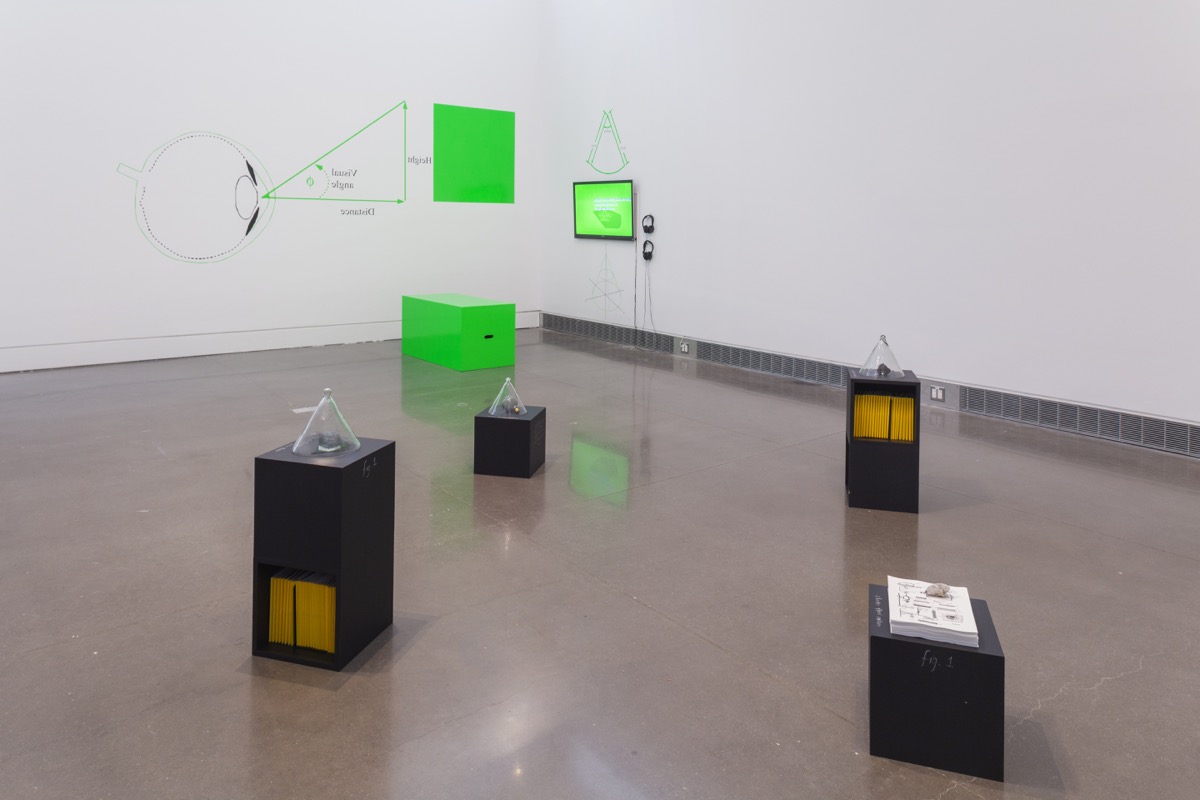| Umber Majeed |  |
|||
 |
My video installation is derived from ongoing research into a feminist re-articulation of the nuclear history of Pakistan. I am using video and graphic elements to collapse multiple research sources, which include family photographs, widely disseminated stock imagery, tourism ephemera and Urdu poetry through which the state ideological apparatus becomes apparent. In Pakistan, it can be the case that academics, writers, and poets with governmental ties disseminate patriarchal, nationalist ideology through both publications and the digital sphere; their work makes certain bodies (women, children, minorities), already unrepresented in the state apparatus, illegible. I am interested in reorganizing/ inverting such knowledge systems. The conceptual and visual references I use are appropriated from Urdu children’s textbooks from the Pakistani state-religious canon on how the body receives light and color only through the eyes of God. I developed a choreography of absurdist gestures aimed at attracting green light, meant to feed the body, heart, and soul. The color green functions as a mode of spirituality perpetuated and disseminated by Pakistani nationalism and Islamic orientalism. In my work I’m intentionally conflating this with references to light therapy and to the use of green screen technology in film. |
|||
| The video functions as an instruction manual both conceptually and structurally for citizens displaced from the Chaghi Monument Hill, a site used for male-dominated celebrations of "Youm e Takbeer" (The Day of God’s Greatness), a national holiday that commemorated the nuclear tests done in the 1990s. Green light and a phallic green cone become visual motifs to represent hegemonic power. Through a fictional narrative I collapse bodily cones (in the eye and ear), reproductive cones (within plant life), cones in digital space (modes of projection), and cones in theoretical physics (to reconfigure the measurement of time-space) to activate the hegemonic phallic cone, inherent in the bodies of citizens; absurdist diagrammatic drawings, stock imagery, and the ideological state science texts act as references for the video imagery and sound. In the script, the patriarchal state structure speaks through a fictional contemporary mainstream Urdu poet, subversively implicating the bodies of citizens (specifically women) as it perpetuates state-sanctioned notions of love, science, and nature. The narrative inverts the “In the Name of God” rhetoric initially used to push the Pakistan nuclear project in Pakistan by over-performing this rhetoric. This conceptual framework is an extension of a performance lecture/animation, Atomi Daamaki Wali Mohabbat (The Atomically Explosive Love). |
||||
 |
My art training in Pakistan, New York, and Lebanon has activated a mapping of my cultural hybridity as an American-born and -raised, Pakistani-descent Muslim woman of color. The humor, lush visuality, and broken perspective within the writing, drawings, collages, and animations seek to make visible the outlines of cultural alienation and systematic violence of the South Asian diaspora. | |||
| prev | Umber Majeed (b. 1989, Oceanside, NY) received an MFA from Parsons School of Design at The New School (2016), an BFA from Beaconhouse National University in Lahore, Pakistan (2013), and completed the HWP Fellowship at Ashkal Alwan in Beirut, Lebanon (2017). Majeed has shown in venues across Pakistan, North America, and Europe. Recent group exhibitions include apexart, New York, NY (2017); Queens Museum, Queens, New York (2016); the State Hermitage Museum, St.Petersburg, Russia (2015); Shirin Gallery, New York, NY (2015); and the Slought Foundation, Philadelphia, PA (2012). Majeed is a recipient of a number of fellowships and currently a Keyholder Resident at Lower East Side Printshop in NY. Her work has been acquired by several private collections, including the Lekha and Anupam Poddar Collection at the Devi Art Foundation in Gurgaon, India. She is a member of Harem.Haram.Hamam Collective, an emerging artist collective currently based in NY. She lives and works between Lahore, Pakistan and Rosedale, Queens. | next | ||
| prev | next | |||



